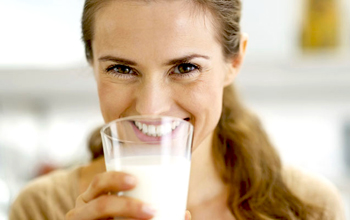Sep 17: Do you find drinking milk disgusting? Listen to your heart and change the habit. New research has found that drinking milk and consuming other dairy products may reduce the risk of a heart attack.
 The link between milk and risk for hyper-tension and cardio-vascular disease (CVD) was examined in a study recently presented at the 12th Euro Fed Lipid Congress in Montpellier, France.
The link between milk and risk for hyper-tension and cardio-vascular disease (CVD) was examined in a study recently presented at the 12th Euro Fed Lipid Congress in Montpellier, France.
"The meta-analyses indicate that there is a link between increasing the number of glasses of milk a day and a lower incidence of hyper-tension and subsequently the heart attack risk," explained Dr Sabita S. Soedamah-Muthu from the Wageningen University in the Netherlands.
Based on nine studies involving 57,256 individuals and 15,367 cases of hyper-tension, the meta-analysis revealed that as total dairy, low-fat dairy and milk (just over two cups a day) consumption increased, the risk for high blood pressure decreased.
Experts also presented data evaluating the effects of dairy products and dairy fat on chronic disease risk factors such as cholesterol, body fat accumulation and weight gain.
"The results lay the groundwork for future investigations into the overall impact dairy may have on public health," researchers noted.
It appears that dairy's nutrient-rich package may have a positive impact on health, development and performance in more ways than previously expected," Schweitzer concluded.
These findings were further supported by a clinical trial published in the American Journal of Clinical Nutrition that showed the addition of four servings of non-fat dairy per day to a routine diet lowered blood pressure in middle-aged and older adults. Globally, cardiovascular disease (CVD) claims 17 million lives each year, while complications from high blood pressure take an additional 9.4 million.





Comments
Add new comment